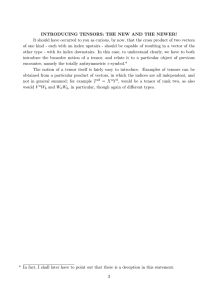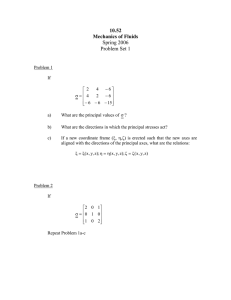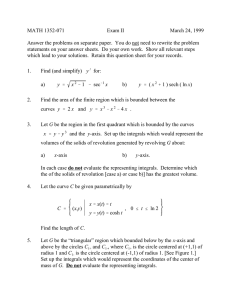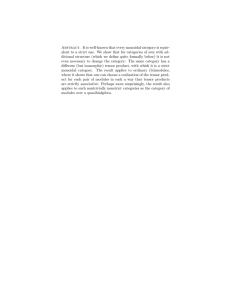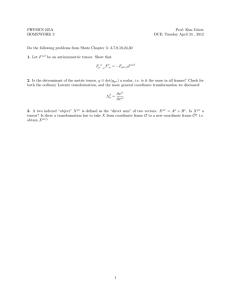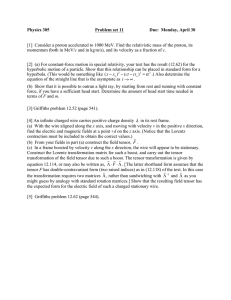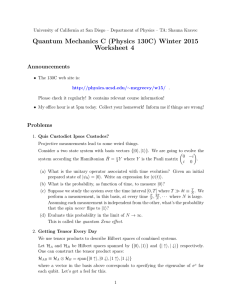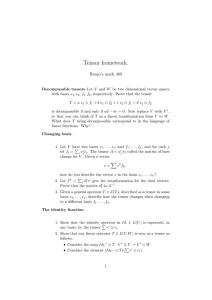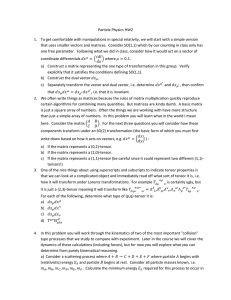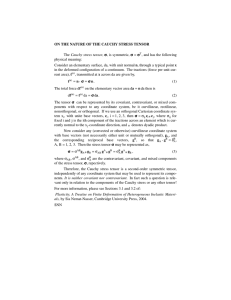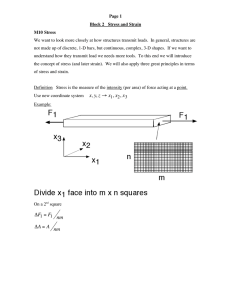957-26-109 otv¨ os University, Budapest, Kecskem¨
advertisement
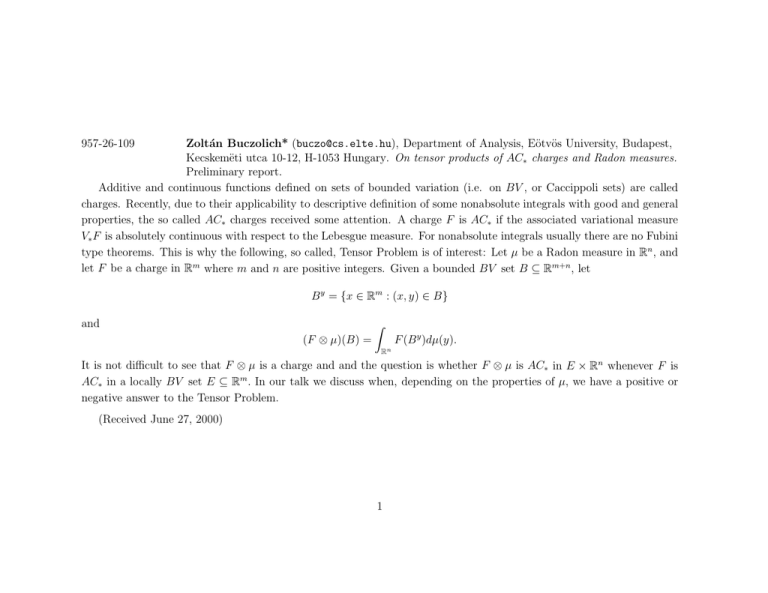
957-26-109
Zoltán Buczolich* (buczo@cs.elte.hu), Department of Analysis, Eötvös University, Budapest,
Kecskemëti utca 10-12, H-1053 Hungary. On tensor products of AC∗ charges and Radon measures.
Preliminary report.
Additive and continuous functions defined on sets of bounded variation (i.e. on BV , or Caccippoli sets) are called
charges. Recently, due to their applicability to descriptive definition of some nonabsolute integrals with good and general
properties, the so called AC∗ charges received some attention. A charge F is AC∗ if the associated variational measure
V∗ F is absolutely continuous with respect to the Lebesgue measure. For nonabsolute integrals usually there are no Fubini
type theorems. This is why the following, so called, Tensor Problem is of interest: Let µ be a Radon measure in Rn , and
let F be a charge in Rm where m and n are positive integers. Given a bounded BV set B ⊆ Rm+n , let
B y = {x ∈ Rm : (x, y) ∈ B}
Z
and
(F ⊗ µ)(B) =
F (B y )dµ(y).
R
It is not difficult to see that F ⊗ µ is a charge and and the question is whether F ⊗ µ is AC∗ in E × Rn whenever F is
AC∗ in a locally BV set E ⊆ Rm . In our talk we discuss when, depending on the properties of µ, we have a positive or
negative answer to the Tensor Problem.
n
(Received June 27, 2000)
1
